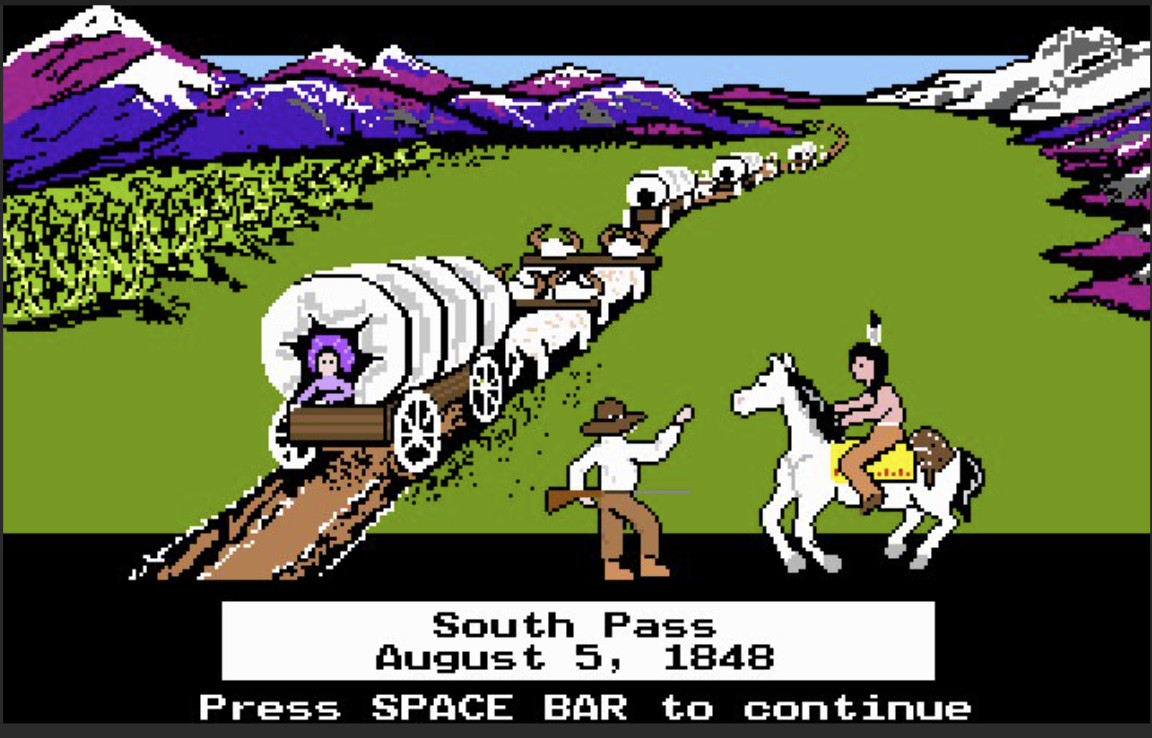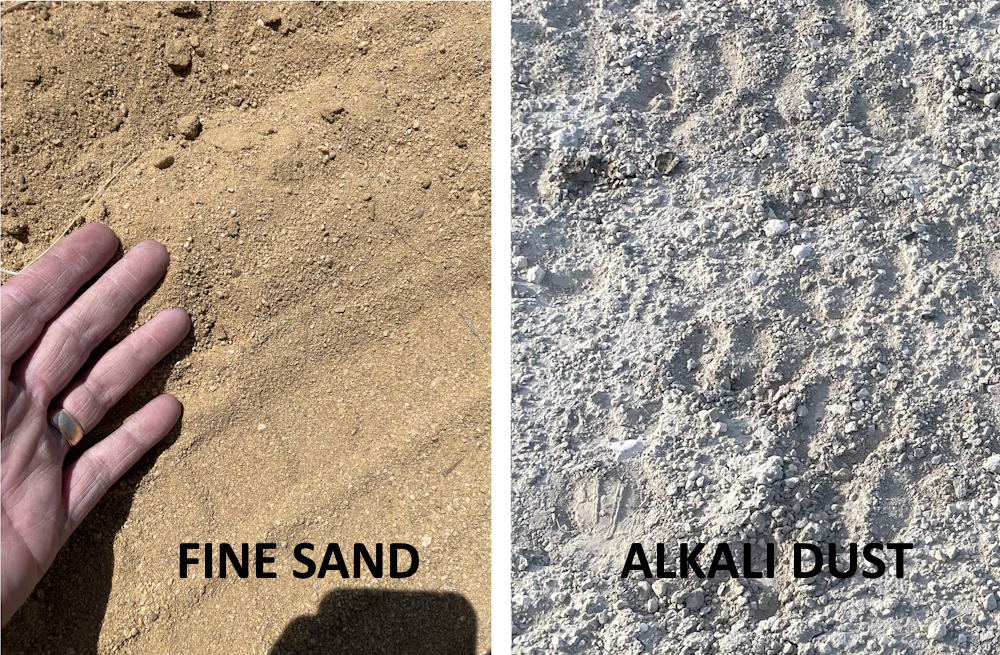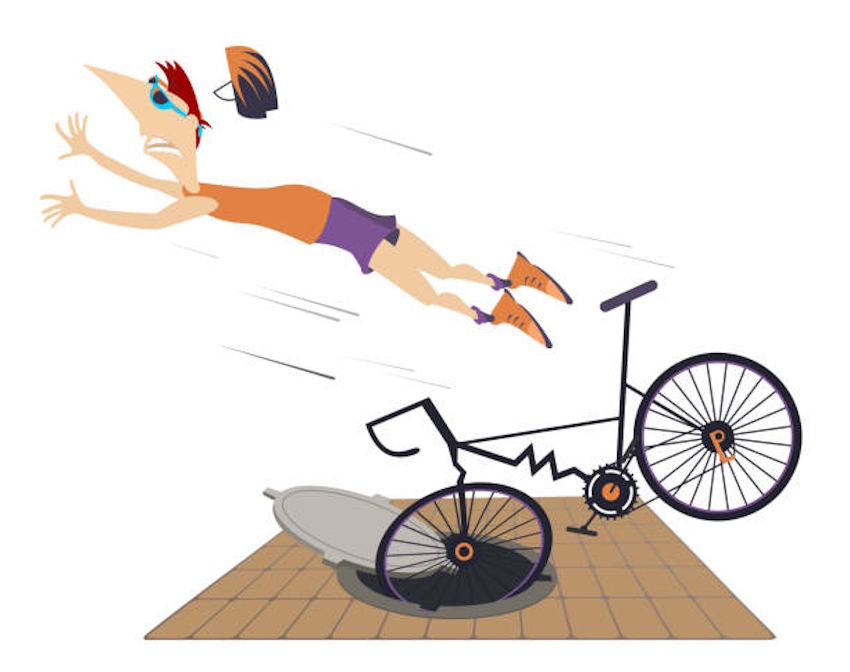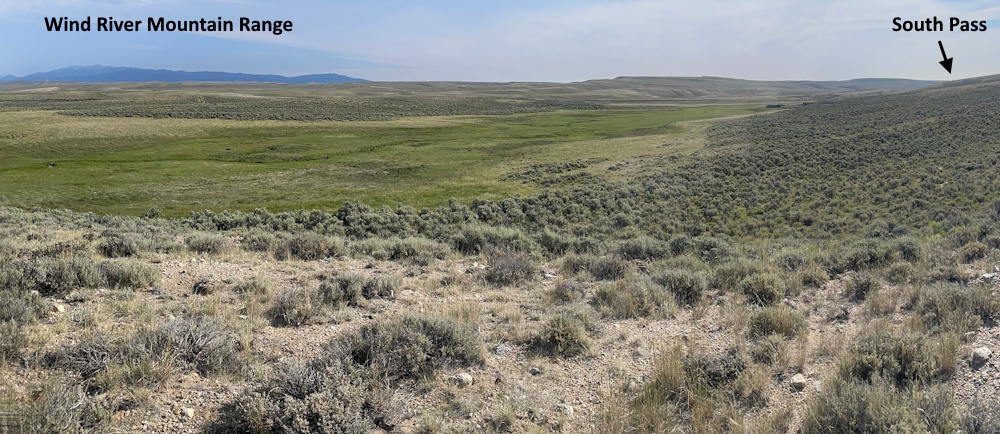
Kevin – Friday. Read any frontier journal and you likely will find a story something like one of these:
"The road to-day was very hilly and rough. … Mosquitoes were as thick as flakes in a snow-storm. The poor horses whinnied all night from their bites, and in the morning blood was streaming down their sides." - Margaret A. Frink, July 11, 1850
” … a storm arose, blew over all the tents but two, capsized our stove with its delicious viands, set one wagon on fire, and for a while produced not a little confusion in the camp. No serious injury, however, was done." - Elizabeth Wood, July 4, 1851
"I will say that this part [of the trail] is the most fertile for rocks and sagebrush of any part of the world that I have ever seen." - Charlotte Stearns Pengra, August 22, 1853
Now, Dear Reader, back to the future of 2025…
If you didn’t read the post for yesterday, let me recap for you. The bike rack had an unfortunate meeting with a stationary object. The rack required some extensive repairs. We’re talking sledge hammer work, grinding and welding to affect a reasonable expectation that all would be well.
For some reason this experience brought to mind frontier misfortunes; broken wagon tongues or wheels, severe weather events, accidents that resulted in serious injuries, etc. Haven’t you played the software game, The Oregon Trail? The beauty of that game depends upon your ignorance. You think you’re properly prepared; “Surely I bought sufficient food, animals, medicine, tools, etc.” But reality sets in. Unforeseen problems arise and before you know it, you’re dead.
The 2-track roads out here in the western desert have lots of deep sand and dust. Originally, the intent was to bring a couple of fat-tire bikes to supplement our road bikes. But time came to leave in April and getting fat-tire bikes was something that just didn’t get done. After some 400 miles of biking, I’d rationalized that maybe we wouldn’t really need the fat tires after all. Yeah. That’s the ticket.
We started the day at South Pass heading west - downhill. The brain bucket helmet was worn today without cajoling by Denny. Though never having seen the west side of South Pass, it obviously was steep and could result in an upset. I like my brain – even as poorly as it functions these days.
Neither of us had presence of mind to video my descent. Neither of us took a still photo. We were both too terrified and busy, Denny managing the truck and me holding onto the handlebars for dear life as the bike screamed down the hill. Along the way I had brief glimpses of rocks of all shapes, sizes and geologic origin. Rock layer shelves. Sand pits of various depths and granularity. Dust bowls.

For a few sections of ‘road’ it seemed prudent to switch from one tire track to the other to avoid what I thought I could perceive ahead. Changing tracks was quite exciting as the front tire obeyed my steering input but the rear tire seemed to have a mind of its own, tending to obey Newton’s First Law of Motion. I remember teaching that very principle to my physics students. Oh, the irony! The descent was a blur both from the speed and the vibration transmitted to my head and eyeballs. Eye muscles don’t compensate for vibration that quickly. Double vision multiplied many times.
Once further down on the flat and paralleling Pacific Creek without the extreme angle of descent, it was time to start pedaling. That went fairly well for a few yards until I hit a deep sand patch. The front tire came to an abrupt halt nearly resulting in me going over the handlebars. That actually happened to me whilst a student at BYU. Not fun.

Walking the bike for a distance got me back to a less difficult stretch, so I remounted my trusty steed and began pedaling - for a few yards, until I entered another sand patch. I tried downshifting but the chain jumped the gears and settled firmly between the gear and the hub. I dismounted, turned my horse upside down and tried to extract the chain … to no avail. And I didn’t ‘buy’ enough tools for my Oregon trip. My steed was done for the day.
Denny had been bouncing down the road and didn’t notice that her bike was not quite standing upright in the stirrups of the bike rack. I tried yelling to get her attention but the truck windows were rolled up. I tried calling, but no cell service. By the time she stopped and I caught up to her, some damage had been done to the truck bed cover. (sigh)
Then Denny tried biking a short stretch, but same for her; her tires are too narrow in the deep sand. So, she walked it until someone came up and played the knight in shining armor thing.
From Pacific Spring on, we hiked the rest of today’s 9 miles. You really don’t want to know all the details, believe me. The whole day reads like a real Oregon Trail game script, warts and all.

But Pacific Springs … you can easily imagine dozens of emigrant groups with their wagons and hundreds of animals in this small valley among the mountains. The camps would be up on the dryer land leaving the animals down in the grassy marsh munching away.
The next day, and for many more days going forward, the land was much dryer, much more desolate. Besides the psychological ‘divorce’ of leaving the eastern lands – America – and all of their lives and loved ones back there, the early emigrants were now firmly in Oregon and going back wasn’t a real option for most of them. They were committed. All in. All together.
And, if we have the humility and compassion to project that experience into today’s world, there are tens of thousands choosing to leave their homes or being forced to leave, looking for something better – not always knowing what that will look like or how hard it will be to get to their ‘promised land’ – but moving forward in faith for a better future. History doesn’t actually repeat itself, but it does resonate. We do this … all together … or we don’t do it at all.
At the same time, any nation that cannot control its’ borders isn’t a nation. Mexico learned that in 1846-48. We would do well to heed our own history.
